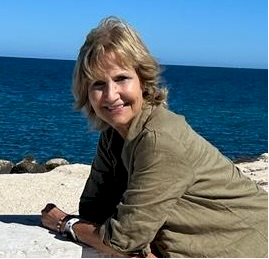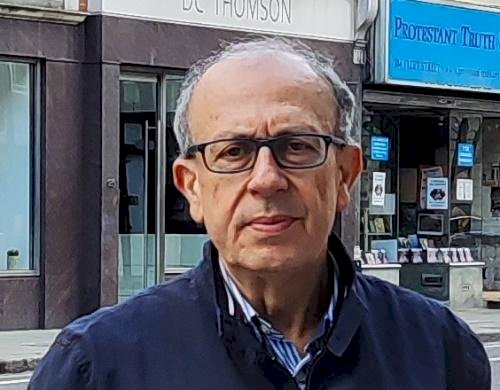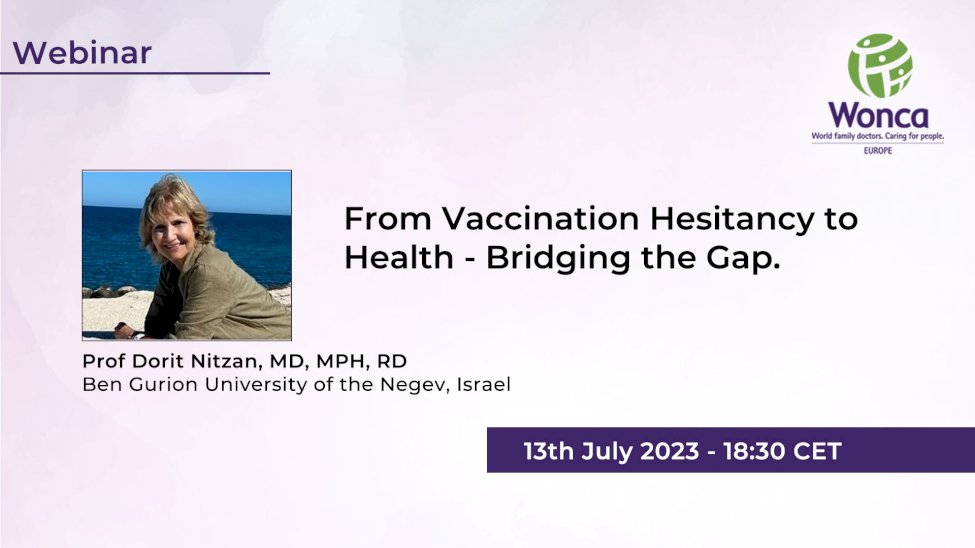Click Here to Join the Session
Registration to this event is very simple and free of charge. Simply log into your WONCA Europe account and click register. If you do not have a WONCA Europe account it only takes a couple of minutes to create an account.
The individual uptake of medical countermeasures, including vaccines, is determined by one or more factors. The most studied ones are delineated under the 5-Cs approach: Confidence and trust; Complacency; Convenience; Communication; and Context. These determinants can be seen using the “security lens” building blocks, just like that of Food and Nutrition Security. Accordingly, “vaccination coverage security” is the outcome of the availability, accessibility, adequacy, and utility of vaccines and vaccination.
Those who deny the important role of vaccinations are at the extreme spectrum of the “hesitancy scale.” In many countries, they have gathered in groups and locations and created strong social networks for people looking for clubs of their own. Their overall approaches to the authorities and their followers, and their provision of social pods, may attract and welcome hesitant people. These social groups have amalgamated further in response to the COVID-19 pandemic countermeasures. They have stood together across countries and borders in cohesive groups, spreading their positions over social media through physical demonstrations and sending opposing and sometimes threatening messages to policy leaders and makers. In some instances, health professionals, communication experts, and others have joined them.
It is now well-recognized that vaccination hesitancy and denial are major threats to global health. In this presentation, I will analyze the different vectors that pull- and push vaccination coverage and suggest adding the sixth C for vaccination hesitancy: Cohesive groups. I will highlight the important roles of primary healthcare physicians and their teams in counteracting such networks by forming new ones. These include identifying strong advocates for vaccination in the community and bridging them with those who are hesitant. This can build stronger compliance by creating supportive networks that improve health literacy in general, and vaccination literacy, in particular.
About the Presenter Prof Dorit Nitzan, MD, MPH, RD

Dorit Nitzan is a professor at Ben Gurion University (BGU). She joined the university in 2022 and directs the Masters Program in Emergency Medicine - Preparedness and Response at the School of Public Health. In addition, she is the Chair of the newly established BGU “Food Systems, One Health and Resilience”, the “BGU-FOR”, Center.
Dorit returned to Israel from the World Health Organization (WHO) where she served since 2005. From 2016 she was based in the WHO Regional Office, lately as the Regional Emergency Director. From 2012 to 2016 She was the WHO Representative and Head of the Country Office in Ukraine, and from 2005 to 2012 she served as the WHO Representative and Head of Offices in Serbia (and until 2009 – Montenegro) and the Public Health Manager for the South-east European Health Network. She returned to Israel in August 2022 after being recalled to lead the Incident Management Team and the WHO humanitarian response in Ukraine.
Following two years of military service, she trained as a dietitian and returned to the Israeli Defense Force (IDF) for two more years. She then completed her medical studies at the Tel Aviv University Faculty of Medicine. She completed her specializations in Pediatrics and Pediatric Gastroenterology and Nutrition and has an MPH degree in epidemiology and biostatistics from the Columbia University Mailman School of Public Health and the Babies Hospital in New York. From 1996 to 2005, she headed the Nutrition and later also the Food Services Departments in the Israeli Ministry of Health.
At Ben Gurion University, Dorit teaches, conducts research, mentors, and leads the Department and the Center. She also participates in national and international committees in the fields of emergencies, health security, One Health, nutrition and food security, remote sensing, epidemics, zoonotic diseases, and the environment, earthquakes, public health capacities, social justice, innovations, emergencies preparedness, and response and resilience. Dorit is currently Chairing the Scientific Committee of the upcoming International Preparedness and Response to Disasters conference, the IPRED 7, which will be held in Israel on 14-17 January 2024. She is a Board Member of the voluntary humanitarian NGO Natan and a Physicians for Human Rights (PHR) member. She has received prestigious awards from WHO, the United Nations, the Ministry of Foreign Affairs, and the hospitals where she served. She volunteers in humanitarian organizations.
Dorit is experienced in assessing and addressing zoonotic diseases, outbreaks, and emergencies using the One Health Approach. She is leading the establishment of out-of-the-box early warning systems, people and animal-centered health, medicine, surrogate sensing, environmental risk exposure, food, and nutrition security, food systems, preparedness monitoring systems, assessments, and management, from bench to action. Her work connects researchers and doers, engaging communities and aiming at leaving no one behind.
About the Moderator Dr Ferdinando Petrazzuoli

This webinar is supported by an unrestricted educational grant from GSK.

